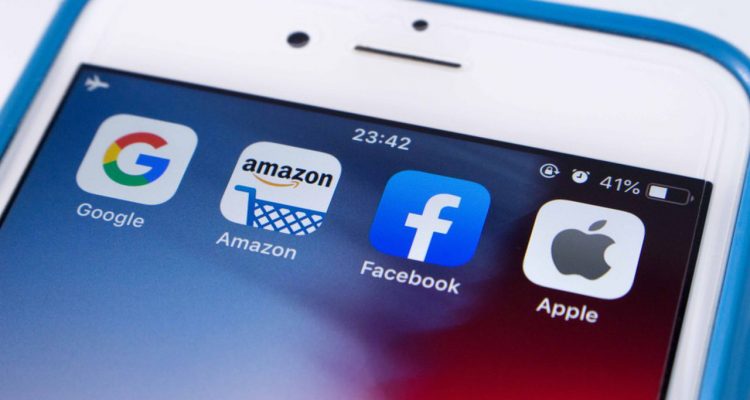It seems as if there is an app for almost everything on smart phones lately. Consumers have options ranging from mindless games to online dating available instantly at their fingertips. These massive digital marketplaces are made possible because of agreements made between app developers and companies like Apple and Google, who run these marketplaces. Unfortunately, a Louisiana bill is threatening the functionality and effectiveness of these marketplaces, and consumer security as well.
The bill in question, HB 641, would force app store providers to allow third-party in-app payment processing systems. This jeopardizes the careful balance struck between distributors and app developers. Distributors can give developers access to their broad platforms like the Apple App Store or Google Play Store at very little cost. They do this by requiring developers to use the same payment processing systems, so they can take a small share of the generated revenue. It’s a win for both parties.
However, multi-billion-dollar developers like Epic Games and Match Group want to circumvent this requirement altogether to avoid these revenue sharing agreements. Forcing app store providers to allow them to do so is a giveaway to these developers and a backdoor tax on consumers. Often, the reason device manufacturers and operating system providers can offer services at such a low cost is because of these agreements. Without them, they will have to offset those losses by charging more on the front-end for consumers, such as when they purchase a smart device. Big developers benefit while consumers suffer.
The logic behind HB 641 also ignores the fact that app developers already have a bevy of options to collect revenue outside of the distributors’ payment processing system. Users can make downloads and purchases on their phone’s web browser without going through the apps or app stores. Companies like Spotify and Match market gift cards for their apps in retail stores that can be purchased and redeemed without going through the unified processing system. Alternatives already exist. This legislative push is not about creating an alternative, but making it easier for developers to make money on the backs of platforms without having to share revenue.
There is also the question of security. The insistence of distributors on a single payment processing system is not purely for the sake of recouping costs. It also helps them ensure that transactions taking place on their devices are secure and not fraudulent. This saves them the time and effort it would require to vet hundreds, if not thousands of different payment systems. It also builds trust with consumers, who will know that in-app purchases they make are secure and they are not jeopardizing their sensitive personal information, such as credit card numbers and addresses.
Given that HB 641 is a state bill, the logistics of its implementation would be a nightmare were it to pass. One of two scenarios would transpire, after expensive and protracted litigation in which the state is unlikely to prevail for myriad reasons, not least of which is attempting to regulate interstate commerce. The first is that companies like Apple and Google will have to develop an entirely different framework for dealing with app purchases inside Louisiana’s borders. This would be a costly, inefficient endeavor and would raise costs across the nation, putting the Louisiana legislature in the position of just having raised costs on millions of consumers they do not represent.
The second is that these companies will limit their business dealings in Louisiana. Given the importance and prevalence of these technologies, this would be a devastating blow for o residents. The legislature would effectively be making it more complicated and costly to do business in the state. If these companies find the first scenario outlined above too onerous and expensive, the tech exodus from Louisiana would be very real and very costly.
The final, most straightforward issue with a bill like this is that it is a solution to a problem that simply does not exist. No one is forcing app developers into these agreements. They are free to walk away from the table if they don’t find the terms acceptable. However, they want access to the digital marketplaces offered and secured by distributors. And, distributors want a portion of revenue from app transactions. Both parties have something the other wants. So, they make a deal through a simple negotiation. Unfortunately, under HB 641, one party in this negotiation is presumed to have some sort of entitlement without making a concession to the other. This is antithetical to our free market system.
As the nation has learned over time, when government picks winners and losers in the market, there are severe consequences for the broader economy and for consumers. With HB 641, those consequences are already evident and predictable. It is Louisiana residents who stand to bear the brunt of fiscal and security consequences.
This article was originally posted on App bill boosts developers at the expense of consumers

Be the first to comment on "App bill boosts developers at the expense of consumers"